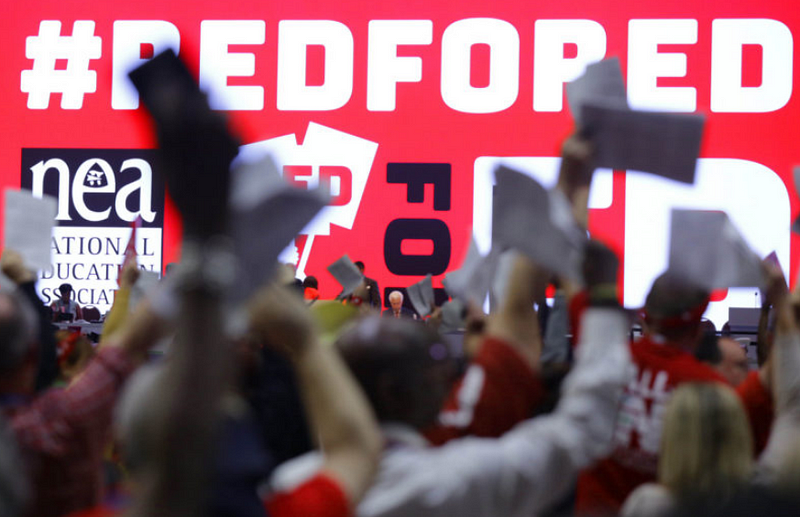NEA’s Representative Assembly: Why All the Fuss?
July marks the biggest event on the NEA calendar

July marks the biggest event on the national education union calendar — NEA’S 2019 Representative Assembly. Some 8,000 delegates convene, representing 3 million public school employees from across the country, who together set policy and chart the direction of NEA business. It’s the largest democratic deliberative assembly in the world.
NEA’s Annual Meeting and Representative Assembly is the main policymaking and legislative body of the National…ra.nea.org
The RA itself runs July 4–7, but special member events like the Conference on Racial and Social Justice, the Aspiring Educators Conference, and the NEA–Retired Annual Meeting meet June 29–July 2. On July 3, MSEA delegates, representing nearly 75,000 Maryland educators, meet up for the first of several delegation meetings for briefings and to strategize for the day’s agenda. Delegates are busy from their early morning delegation meetings until at least 6 p.m. every evening.
Among the items on the agenda for the entire assembly to deliberate are amendments to NEA’s constitution that include:
— Updating the preamble to replace the word “teacher” with the word “educator.”
— Amending the preamble to add the word “secular” before “public education.”
— Opening NEA membership to public education allies while preserving NEA governance positions for education professionals and active equivalents.
“NEA’s annual meeting is awe-inspiring. Where else can you be among thousands of educators just like you? Everyone is happy to be there and eager to do the work. We discuss best practices and common challenges as well as the policy issues that affect us all.” — MSEA President Cheryl Bost, who has attended more than 20 consecutive NEA RAs
“The networking opportunities are as informative and energizing as the policy discussions and debates.”
It’s an important year for the RA. On top of deliberation and action on business items and votes by secret ballot on proposed amendments to the NEA Constitution and Bylaws, delegates will hear from candidates for president of the United States. Invitations have been sent to all who qualify for the debates and those who accept will have the opportunity to address the delegates. It’s considered one of the most important appearances a candidate can make, especially so early in the process.
And because of that upcoming 2020 election, says Nikki Woodward, a Montgomery County special educator and co-chair of MSEA’s political action committee (PAC), the Fund for Children and Public Education, fundraising for the national PAC to support federal-level candidates is vitally important.
“PAC donations are voluntary and for a very specific purpose. And that’s important because our dues dollars are used for programming that supports members in every aspect of their profession,” Woodward says.
“Yes, we give at our state level and that funding supports state and locally endorsed candidates, but we need to influence people in the policy-making positions in Washington, too,” Woodward adds. “It’s not about left or right — Democrat or Republican — it’s about being right or wrong on public education. In the end, our fundraising work at the NEA RA is about our students.”
Visit NEA’s Facebook, Instagram, and Twitter starting July 4 for the latest news from the Representative Assembly!

